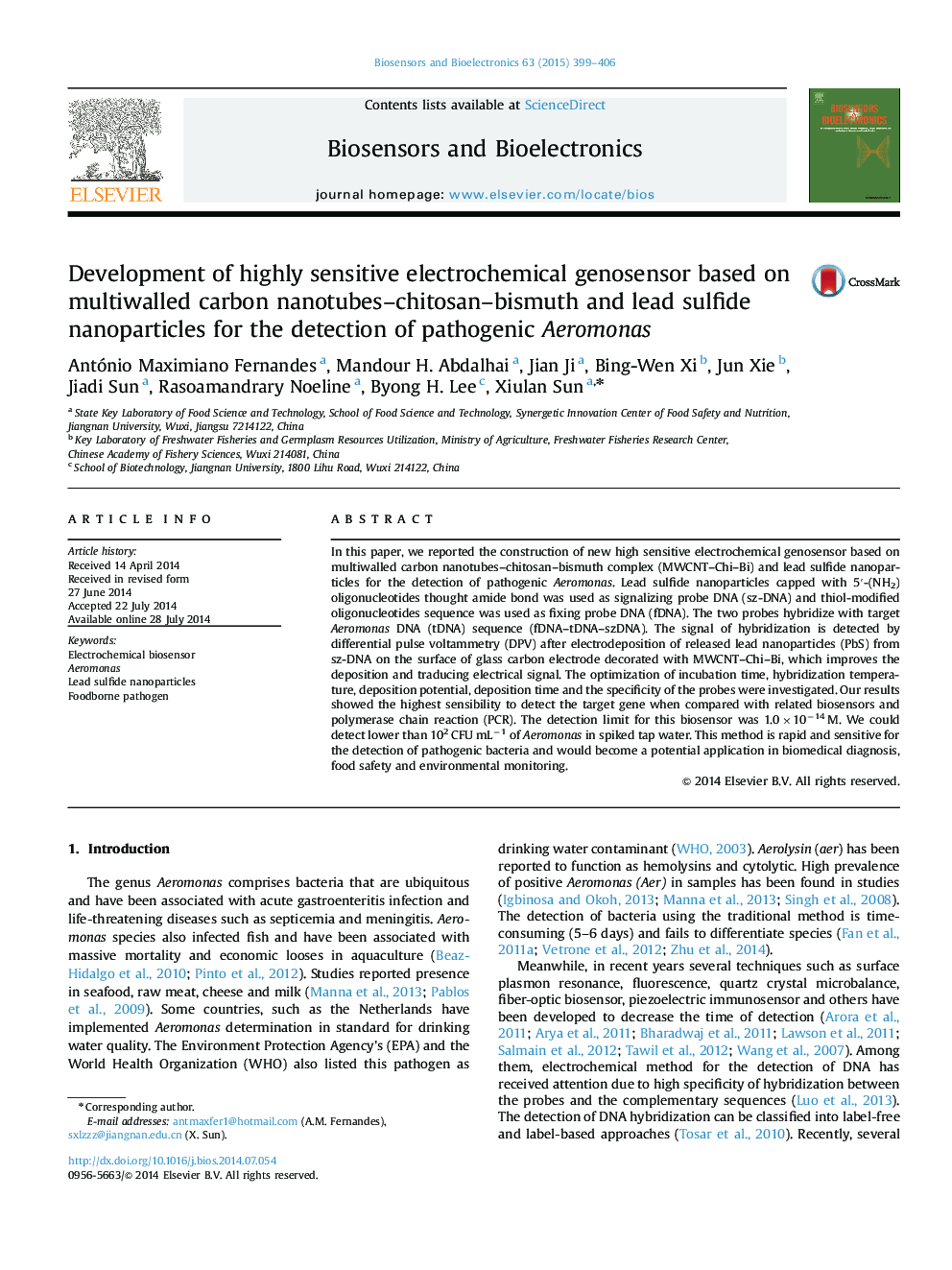| Article ID | Journal | Published Year | Pages | File Type |
|---|---|---|---|---|
| 7233228 | Biosensors and Bioelectronics | 2015 | 8 Pages |
Abstract
In this paper, we reported the construction of new high sensitive electrochemical genosensor based on multiwalled carbon nanotubes-chitosan-bismuth complex (MWCNT-Chi-Bi) and lead sulfide nanoparticles for the detection of pathogenic Aeromonas. Lead sulfide nanoparticles capped with 5â²-(NH2) oligonucleotides thought amide bond was used as signalizing probe DNA (sz-DNA) and thiol-modified oligonucleotides sequence was used as fixing probe DNA (fDNA). The two probes hybridize with target Aeromonas DNA (tDNA) sequence (fDNA-tDNA-szDNA). The signal of hybridization is detected by differential pulse voltammetry (DPV) after electrodeposition of released lead nanoparticles (PbS) from sz-DNA on the surface of glass carbon electrode decorated with MWCNT-Chi-Bi, which improves the deposition and traducing electrical signal. The optimization of incubation time, hybridization temperature, deposition potential, deposition time and the specificity of the probes were investigated. Our results showed the highest sensibility to detect the target gene when compared with related biosensors and polymerase chain reaction (PCR). The detection limit for this biosensor was 1.0Ã10â14Â M. We could detect lower than 102Â CFUÂ mLâ1 of Aeromonas in spiked tap water. This method is rapid and sensitive for the detection of pathogenic bacteria and would become a potential application in biomedical diagnosis, food safety and environmental monitoring.
Related Topics
Physical Sciences and Engineering
Chemistry
Analytical Chemistry
Authors
António Maximiano Fernandes, Mandour H. Abdalhai, Jian Ji, Bing-Wen Xi, Jun Xie, Jiadi Sun, Rasoamandrary Noeline, Byong H. Lee, Xiulan Sun,
